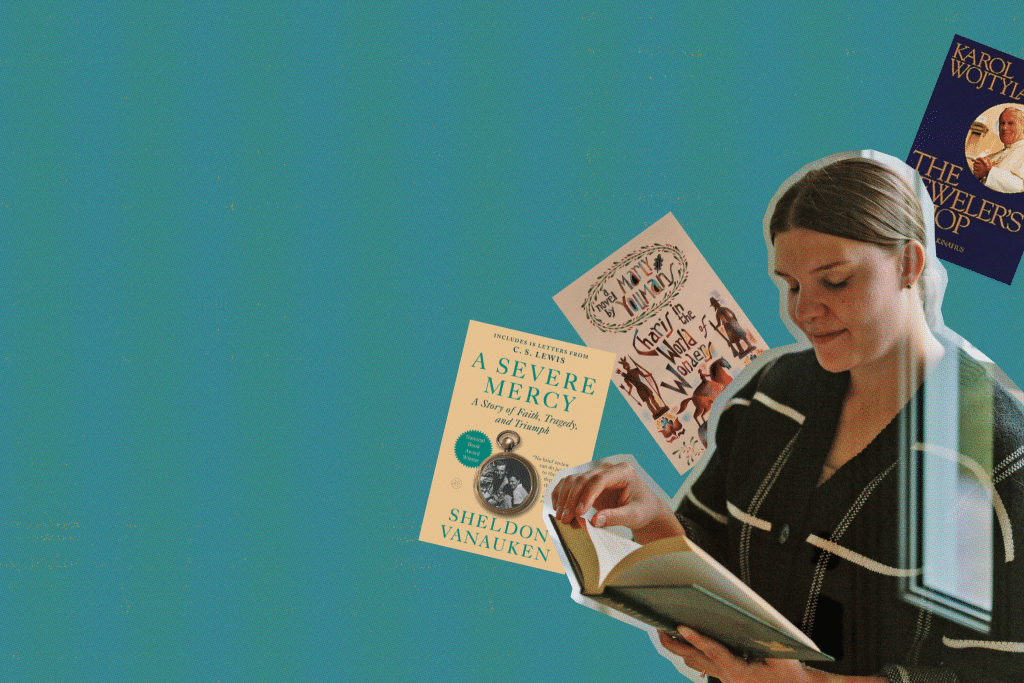“Gilead” by Marilynne Robinson
“There is no justice in love, no proportion in it, and there need not be, because in any specific instance it is only a glimpse or parable of an embracing, incomprehensible reality.”
Marilynne Robinson’s 2004 Pulitzer Prize-winning “Gilead” is an intergenerational story taking place in a small Iowa town during the 1950s and takes the form of a long letter. John Ames, a Congregationalist minister in his mid-70s, who is ailing in health, wants to leave his young son a record of his life as a way for the boy to remember him after he dies. From the Civil War to the 20th century, Ames’ recollection touches on the relationship between fathers and sons, spiritual battles, and Ames’ marriage to his wife Lila, a woman with a hard-scrabble life he falls in love with after seeing her at Sunday service. In the words of Kirkus, it is a novel “as big as a nation, as quiet as thought, and moving as prayer.”
If you find yourself liking “Gilead,” be sure to check out Robinson’s other books in the series — Home, Lila, and Jack, which all address the same themes of faith, race, and love.
“The End of the Affair” by Graham Greene
“I’ve caught belief like a disease. I’ve fallen into belief like I fell in love.”
Greene’s “End of the Affair” features the recollections of Maurice Bendrix, a writer in post-WWII London writing a retrospective account of an adulterous affair with Sarah on the year anniversary of her death.
Hoping to rid himself of his preoccupation, he details their relationship from the beginning to the belief that ultimately tears them apart — Sarah’s newfound faith in God. It may seem strange to include a book featuring an extramarital affair in a list about Christian love and marriage, but it is through the narrator’s investigative autopsy of his former relationship that the beauty of Sarah’s desire for faith-filled love shines. Like “Heart of the Matter,” and “The Power and Glory,” Greene exposes his own experience of falling away from and returning to the faith through the journey of his ever-compelling characters.
“Charis in the World of Wonders” by Marly Youmans
“In our trials, while each crisis counts, we will fly up anew like the phoenix and go on. For Christ is with us amid all slings and arrows.”
From Ignatius Press comes this 2020 novel that follows its titular heroine, Charis, through the perils and radical survival in 17th-century Puritan New England. After fleeing the massacre of her community, we follow Charis on a journey to seek shelter and a new family. The world outside her home is hazardous, wild, and full of the evils her Puritan community warned her about, but it is also undeniably full of wonders, most notably the wonder of falling in love with another orphaned adventurer and building a marriage and family. History buffs will love the world-building and archaic language, but also anyone who knows the world to be both fraught with terrible wounds and overwhelmed by unthinkable grace.
“Anna Karenina” by Leo Tolstoy
“In all human sorrow nothing gives comfort but love and faith, and that in the sight of Christ’s compassion for us no sorrow is trifling.”
The novel that William Faulkner once called “the best novel ever written” is, at its heart, a love story from the messy fractured love of a couple grappling with infidelity, to the early love of a couple embarking in the first years of married life and parenting. We follow these four characters through all the temptations, hardships, growth, and virtue that Christian love and marriage have to offer.
“The Jeweler’s Shop” by Karol Wojtyla
“Love is not an adventure. It has the taste of the whole man. It has his weight. And the weight of his whole fate. It cannot be a single moment. Man’s eternity passes through it.”
One of the future pontiff’s earliest reflections on love and marriage is a play he wrote in 1960 — when he was still Karol Wojtyla. Wojtyla, who was a student of literature and was involved in theater throughout his life, wrote this three-act play as a meditation on marriage told through the struggles and triumphs in the marriages of three couples. One couple’s marriage ends with a spouse’s premature death, another mourns their broken love that needs healing, and the final couple is overcoming wounds from their upbringing. At crucial points, all protagonists meet in front of a jeweler’s store where the artisan serves as a voice of conscience. Each couple’s interaction sheds light on the tensions between the spouses, the wounds of their past, and their desires for the future. Resisting happy endings with wit and warmth the play delicately shows the disproportion that arises between an ideal of love and the reality of life — where love is a dedicated and perpetual “yes.”
“A Severe Mercy” by Sheldon Vanauken
“To hold her in my arms against the twilight and be her comrade forever — this was all I wanted so long as my life should last. And this, I told myself with a kind of wonder, this was what love was: this consecration, this curious uplifting, this sudden, inexplicable joy, and this intolerable pain.”
Vanauken’s heart-rending memoir chronicles his marriage to his wife, Jean “Davy” Palmer Davis, their search for faith and eventual conversion, (in part thanks to the influence of their friend C.S. Lewis whom they met while at Oxford) and, eventually, his grief as he grapples with her untimely death. Vanauken chronicles the birth of their relationship borne out of their early, bohemian, faithless, wandering days, to the eventual conversion to Christianity that would sustain Vanauken through his grief, as well as includes interweavings of his personal letters to-and-from C.S. Lewis, “A Severe Mercy” addresses some of the biggest questions surrounding belief and the existence of suffering.
